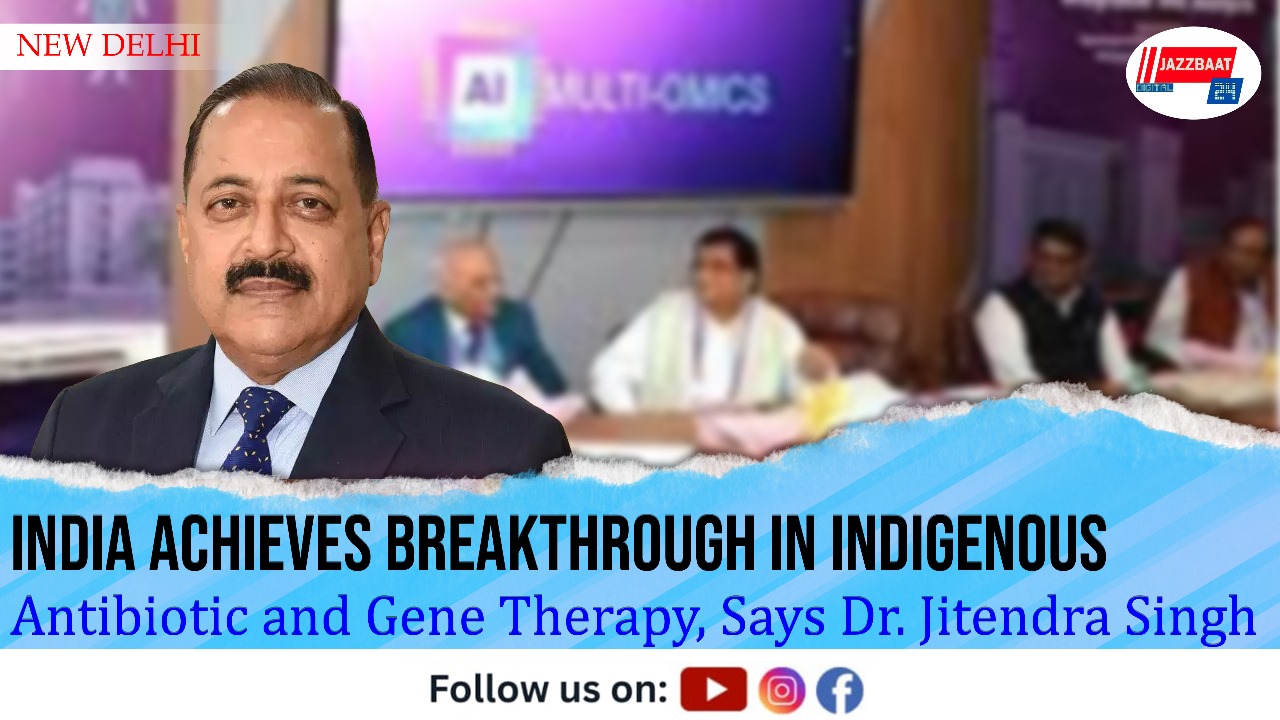NEW DELHI: Union Minister of State (Independent Charge) for Science and Technology, Dr. Jitendra Singh, announced that India has successfully developed its first indigenously discovered antibiotic, Nafithromycin, marking a major leap toward self-reliance in the pharmaceutical sector. The antibiotic, effective against resistant respiratory infections, is particularly beneficial for cancer patients and individuals with poorly controlled diabetes.
Developed jointly by the Department of Biotechnology (DBT) under the Government of India and private pharmaceutical firm Wockhardt, Nafithromycin is the first molecule entirely conceptualised, developed, and clinically validated in India. Dr. Singh described the development as a landmark achievement in industry-academia collaboration and an example of India’s growing biopharmaceutical capabilities.
Inaugurating a three-day medical workshop on “Harnessing Artificial Intelligence for Multi-Omics Data Integration and Analysis,” the Minister highlighted the importance of creating a self-sustainable innovation ecosystem that reduces reliance on government funding. “India must foster a culture of private sector participation and philanthropic support to gain global recognition in research and innovation,” he said.
Dr. Singh also announced another major breakthrough, India’s first successful indigenous clinical trial in gene therapy for Hemophilia treatment. Supported by the Department of Biotechnology and conducted at Christian Medical College (CMC), Vellore, the trial achieved a 60–70 per cent correction rate with zero bleeding episodes. The study’s findings, published in the New England Journal of Medicine, demonstrate India’s expanding leadership in advanced biomedical research.
Highlighting India’s genomic progress, Dr. Singh stated that over 10,000 human genomes have already been sequenced, with the goal of scaling up to one million. He said that the establishment of the Anusandhan National Research Foundation (ANRF) with an outlay of ₹50,000 crore over five years, including ₹36,000 crore from non-government sources represents a paradigm shift toward self-sustaining, innovation-driven research.
The Minister emphasised the transformative role of Artificial Intelligence (AI) in healthcare and governance. He cited examples such as AI-powered hybrid mobile clinics delivering healthcare in rural areas and an AI-driven grievance redressal system under the Department of Administrative Reforms and Public Grievances (DARPG), which now resolves 97–98 per cent of complaints weekly.
Dr. Singh lauded institutions like Sir Ganga Ram Hospital for integrating AI, biotechnology, and genomics to enhance healthcare outcomes and called for greater collaboration among government departments, private hospitals, and research institutions to realise the vision of Viksit Bharat @2047.
He concluded that India is entering a new era of self-reliance in biotechnology, AI, and genomic medicine, where “the convergence of innovation, collaboration, and compassion will define the nation’s journey toward becoming a global leader in science and technology.”
